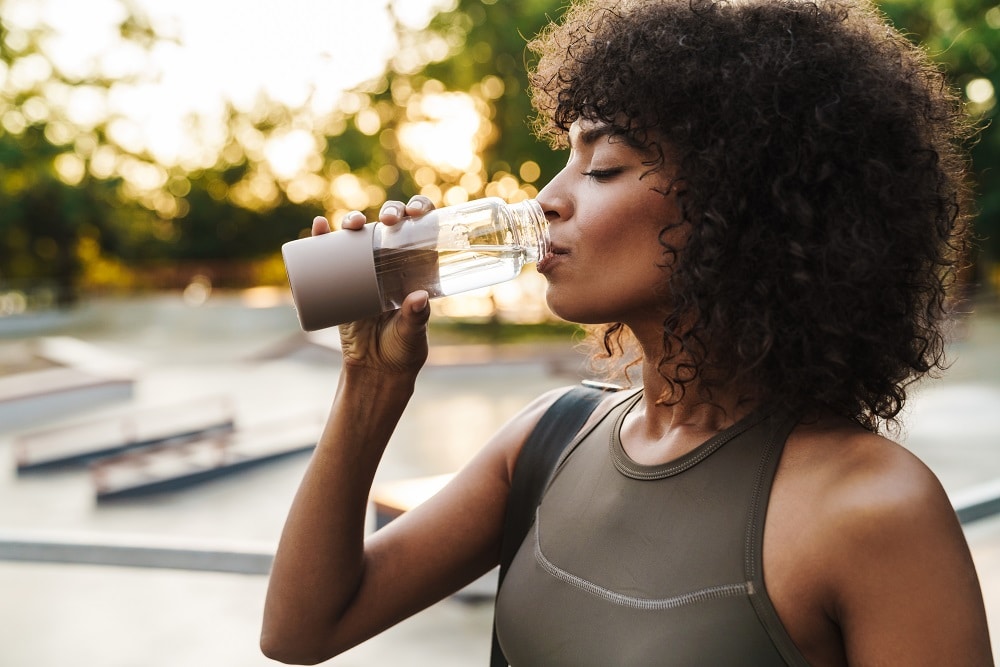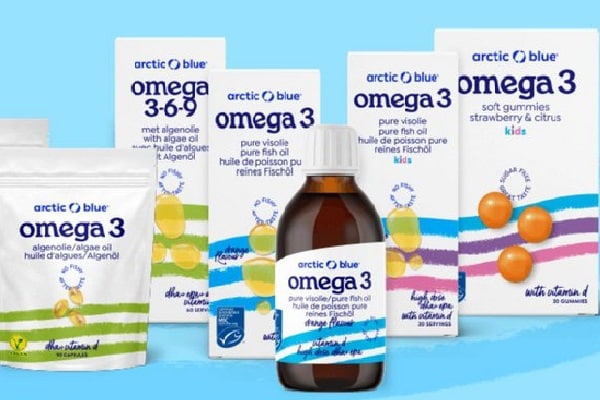As you work to develop a healthy diet and lifestyle, don’t forget one essential element of a healthy life: hydration. Drinking enough water can be the missing link for your health. It’s so necessary for Read More The post...

As you work to develop a healthy diet and lifestyle, don’t forget one essential element of a healthy life: hydration. Drinking enough water can be the missing link for your health. It’s so necessary for so many different parts of your body. Furthermore, changes to your diet and exercise may make you more likely to become dehydrated. Certain life stages or events also heighten your dehydration risk. Make sure you know the signs and risk factors for dehydration.
Signs of Dehydration
You may be feeling symptoms of dehydration without knowing the cause. So much of the body relies on water, so not getting enough makes a huge difference. Look at these signs and symptoms of dehydration. Drinking more water may be a simple solution to these concerns.
Feeling thirsty – This one seems obvious, right? Well, thirst is usually your body telling you that it needs water. Listen to this signal, and drink water when you’re thirsty. Both children and older adults may not feel thirst as quickly or recognize the signal their brains are sending to them. This is one reason why these age groups are at higher risk of dehydration. Plan water breaks for your kids and set a daily water goal for older adults. Color of urine or infrequent urination – If you don’t need to use the bathroom as often as usual, you may need more water. Also, dark colored urine is usually a clear sign that the body is not well hydrated. Conversely, light yellow urine shows that you have been drinking enough water. Dizziness and lightheadedness can be a telltale sign of dehydration. Blood pressure may drop with dehydration. If you feel unexpectedly lightheaded when you stand, you may need to drink some water. Be especially careful of this when exercising or in hot weather. Fatigue – Lack of water can lead to feeling tired and lethargic, especially when exercising. Numerous studies have found that athletes had more difficulty performing at their peak when dehydrated. But, water affects more than just exercise. Anyone who is not drinking enough may feel more tired and find difficulty performing the tasks. Headaches – For some people, a headache means they need water. Some studies also show that water also can help lessen headache pain and length. People who experience migraines are encouraged to drink more water to help lessen pain and length of headache. Confusion – dehydration has been linked to poor mental performance and cognitive function. Tasks may seem more difficult or harder to complete if you are not drinking enough. Mood – If you don’t drink enough water, you are more likely to feel irritable, upset, or depressed. If your mood is low, consider drinking some water to help lift your spirits. Increased clumsiness or lowered dexterity – Dehydration lowers motor skills and coordination. If you find yourself tripping more often than usual, you may need to drink some water. This is something to be especially aware of as you exercise or if the weather is warm.Water’s function in the body
Water is an essential part of your body and diet. You cannot live without it for more than a few days or so. It does make up about 2/3 of your body, and your body needs it for so many functions. Here are just some of its important operations in your body.
Water helps control your body’s temperature. When you are warm, your body sweats to cool itself. So, it’s even more important to drink water when it’s hot outside, especially for older adults and children. Both of these age groups do not regulate their body temperatures as effectively, sweating less or more slowly recognizing the need for temperature regulation. Water is a key part of waste management in your body. You need water to flush out toxins and help keep your body healthy. Because water is used throughout your body, you need it for almost everything. It’s a major part of your cells and fluid surrounding your cells. Water is necessary for efficient function of your body in general, but major organs and parts of your body greatly benefit from proper hydration. Your kidneys are maybe the most obvious. Your kidneys need enough water to flush out the toxins and waste from your body. Drinking more water is one of the first recommendations for people who suffer from kidney stones. It has been shown to lower the risk of future kidney stones. Your heart needs water. It provides the fluid necessary for healthy blood and blood cells. Lastly, you need water for proper brain function. Lack of water leads to imbalanced mood, confusion, fatigue, and lowered coordination.When are you most at risk for dehydration?
Most adults in the developed world have consistent access to clean drinking water. Dehydration may not be a serious health risk for most. Drinking water when you feel thirsty may be all you need to do to improve your overall health. However, certain factors increase your risk for dehydration.
Exercising – Drink water before exercising and have water on hand during your workout. This will help improve your exercise performance and keep your body from running low on water as you sweat and your body temperature increases. Age – Older adults are more likely to become dehydrated. Often thirst signaling becomes less reliable with age. The body also loses some of its ability to adapt water levels and keep the body functioning well in different environments or with changes in amounts of drinking. If incontinence is an issue, older adults may drink less because of anxiety over a bathroom being close by. Medications also often disrupt perception of thirst. Children are also more likely to become dehydrated. Children also have more trouble regulating their body temperatures, sweat less, and do not always recognize their thirst signals. Pregnant or Breastfeeding – You not only need to eat for two, but you also need to drink for two! Doubling your liquid intake is not necessary, but your body does need added hydration when pregnant and when breastfeeding. Your energy needs go up while pregnant, and your drinking should match. Breastfeeding requires producing liquid for your child, so your body demands more water to produce the milk your child needs.Keep a water bottle nearby as you go about your day. This reminder to hydrate may help you keep your body healthy. Water is essential for so much of your body and being insufficiently hydrated impacts your health and ability to live a happier life.
References:
https://www.mayoclinic.org/diseases-conditions/dehydration/symptoms-causes/syc-20354086
https://www.ncoa.org/article/10-reasons-why-hydration-is-important
https://www.ncbi.nlm.nih.gov/pmc/articles/PMC7877883/
https://www.ncbi.nlm.nih.gov/pmc/articles/PMC6356561/
https://medlineplus.gov/dehydration.html
https://www.ncbi.nlm.nih.gov/pmc/articles/PMC2908954/
https://alternativemedicine.com/lifestyle-2/10-common-signs-of-dehydration/
https://www.ncoa.org/article/10-reasons-why-hydration-is-important
The post Hydration: An Overlooked Ingredient for Health? appeared first on Alternative Medicine Magazine.












